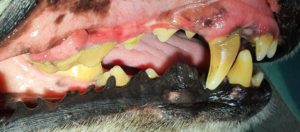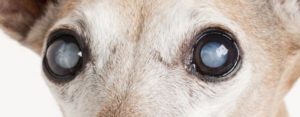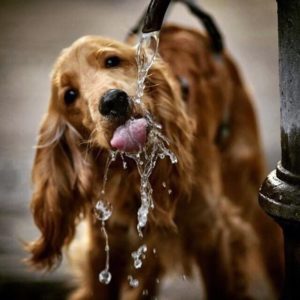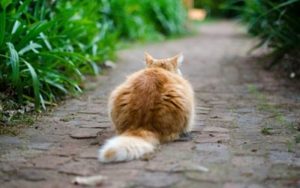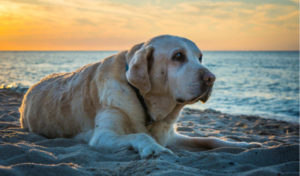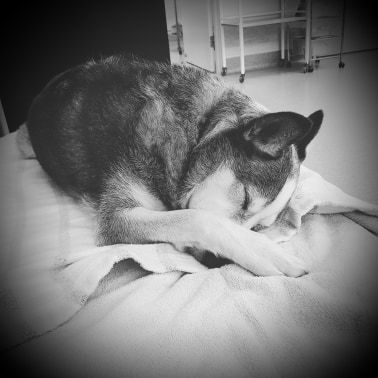
Our pets seem to be a puppy one day and before we know it we are noticing small changes to show they have slipped from middle age into old age…..
How do we recognize when our pets are getting old?
- Is it the grey on the muzzle?
- Is it by the way they sleep more in their bed?
- Is it by the way they can’t jump into the car or onto the couch anymore?
- Is it by the way they are not destroying their beds or disappearing down the road anymore?
- When should I be concerned and take my elderly friend to the vet?
Aging happens to our pets at varying rates but the general rule of thumb is that our pets are considered senior when they are older than 7 years. This holds true for dogs and cats. However, dog breeds vary in their longevity, with very large breeds being considered senior at 5 years of age
Our pets can age without developing some of the problems that come with older age and have a great quality of life well into their geriatric years. Some of our pets however will develop some of the common illnesses that come with advancing age.
A thorough veterinary exam on a regular basis combined with an observant owner will identify these diseases early and allow them to be managed so that your old friend stays as happy and comfortable as possible.
Some of the more common problems that older cats and dogs have that significantly impact on their quality of life are arthritis, dental disease, obesity, hearing and vision loss, heart disease, kidney disease, hormonal diseases, dementia and of course cancer. There are many ways to treat these diseases and your veterinarian will advise you.
It is so important that you as an owner keep an eye out for early changes associated with the above diseases and bring them to the attention of your veterinarian.
Arthritis
Look for difficulty getting from a sit to a stand, or getting settled at night.
Difficulty jumping into or out of the car or couch or bed.
Slowness and reluctance to go for a walk.
Early morning lameness and stiffness
Thickened joints
Prior surgery on the joints earlier in life.
Dental Disease
Does your dog or cat have bad breath?
Can you see obvious yellow or brown tartar?
Can you see red and inflamed gums?
Dental disease is very common and causes pain and illness.
Obesity
Becoming chubby as they get older is common for our elderly pets and is caused by a changed metabolism, reduced exercise and us giving them the same amounts and types of food. Obesity is a health risk for your pet, impacting arthritis, diabetes, heart disease and others.
Heating and Vision Loss
These are common and sometimes undetected changes in your old friend.Often as long as we provide a safe and secure environment known to your pet they can cope well. Vision loss does need to be examined to check for eye diseases that cause pain.
Heart Disease
Heart disease is very common in the smaller dog breeds and needs to be identified early by your veterinarian to make sure that it is managed appropriately. Some dogs may have heart disease in their old age and never need medication, others need medication to make sure they can cope. Heart disease also happens to cats and larger dogs, however less frequently.
The most common sign of heart disease in dogs and cats is that they “slow down”, which for a dog means less walking and playing and a cat means more sleeping. Your pet’s heart will be carefully examined when they have their yearly checkup.
Kidney Disease
The kidneys play a central role in maintaining fluid balances in the body and washing the blood of toxins and impurities. It is a common organ to start to fail in old age with drinking more than usual, picky appetite and weight loss common signs to look for.
Blood tests and urine tests are necessary to identify and manage kidney disease.
Hormonal diseases
There are a few common hormonal disorders that elderly pets are prone to.
Cats commonly get hyperthyroidism with thirst, weight loss and increased appetite and sometimes vomiting and diarrhoea.
Dogs are prone to hyperadrenocortism whereby they are thirsty, hungry, develop hair-loss on their back and a pot belly.
Both dogs and cats can develop diabetes and will have weight-loss, and be hungry and thirsty.
These diseases are also diagnosed and managed with blood tests and urine tests and are quite easy to treat most of the time.
Dementia
Dogs and cats suffer from cognitive decline as do humans as they age. They may lose some of their training, wander aimlessly, bark at nothing, go to the wrong side of the door to go out and show more anxiety.
Cancer
This is of course a stressful diagnosis to get in your pet and any lump or bump seen on the skin or in the mouth is best checked by your veterinarian while still small in size. Other signs of cancer can include fatigue, weight loss and being off food. The diagnosis of cancer can include biopsies, x-rays, ultrasound and blood tests.Cancer can be treated and in some cases cured by a combination of surgery and sometimes chemotherapy as in humans. There are many cancers in dogs and cats that can be cured by surgery alone.
These are of course not the only diseases older pets can get, but they are some of the more common. It is important to have your older pet examined by your veterinarian at least yearly and if there are diseases being managed sometimes it is more than that.
Many diseases are not cured but can be well managed to make sure your friend’s quality of life is optimized. Your veterinarian will strive very hard to make sure your pet remains happy, healthy and pain free in the latter years.
When your pet’s quality of life is no longer reasonable and no other options are available then the really heartbreaking and complex subject of euthanasia arises. This is a really difficult and challenging time for us as owners and veterinarians as we all want our pets not to suffer.
Euthanasia is discussed with the help of your veterinarian to guide you and is handled sensitively and carefully. The process is quiet, calm and dignified and ensures your pet does not suffer. Many owners request cremation and have the ashes returned for scattering or to keep.
Gisborne Veterinary Clinic has a team of experienced and compassionate veterinarians and nurses who have all owned elderly pets and understand the bond of friendship and loyalty that exists between you and your elderly pet. They will work hard to make those later years some of the best your pet has in life.


